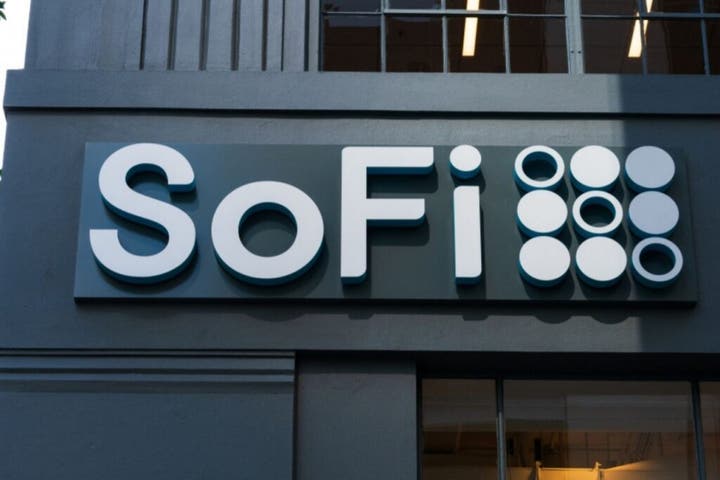SoFi Technologies recently unveiled its second-quarter financial results, showcasing impressive growth and profitability that defied initial market reactions. Despite a dip in its stock performance on Wednesday, the fintech giant reported figures that significantly surpassed Wall Street’s expectations, driven primarily by the robust performance of its core loan platform and a substantial increase in its customer base and product adoption.
The company’s second-quarter revenue soared to $858.23 million, comfortably exceeding analyst estimates of $801.49 million, marking a remarkable 44% year-over-year increase. A key highlight was the 72% climb in fee-based revenue, underscoring diversified income streams. This robust financial earnings report was further bolstered by a 34% surge in both members, now totaling 11.7 million, and products, reaching 17.1 million, demonstrating strong user acquisition and engagement.
Central to SoFi’s exceptional performance was its loan platform, which originated a substantial $8.8 billion in loans during the quarter. This strong loan platform momentum, coupled with the overall positive outlook, prompted SoFi to significantly raise its full-year 2025 revenue outlook. The new target of approximately $3.38 billion signals increased confidence in sustained growth, positioning the company favorably against prior estimates.
Following these strong results, analysts offered varied but largely positive assessments. Needham analyst Kyle Peterson reiterated a “Buy” rating on SOFI stock, raising his price target from $20 to $25, citing the significant outperformance in revenue and earnings. Conversely, Citizens JMP Securities analyst Devin Ryan maintained a “Market Perform” rating, acknowledging the strong quarter but expressing some valuation concerns post-stock rally, yet confirming the company’s solid operational footing.
SoFi’s profitability metrics underscored its operational efficiency. The company reported GAAP revenue of $854.9 million, a 46% year-over-year increase, and adjusted revenue of $858.2 million, both exceeding forecasts. GAAP EPS reached 8 cents, topping estimates, while EBITDA climbed to $249.1 million, significantly above projections. This impressive EBITDA figure, driven by revenue strength and improved operating leverage, illustrates the underlying financial health and efficient management of the fintech growth.
Further strengthening its financial position, SoFi completed a $1.5 billion secondary common stock offering shortly after its earnings report. This strategically timed capital raise at $20.85 per share is projected to boost total risk-based capital by approximately 440 basis points, reaching an estimated 18.8%. This enhanced capital position is seen as a healthy indicator for an investment analysis, providing ample flexibility for future growth initiatives and enhancing SoFi’s appeal to institutional investors.
Looking ahead, SoFi is actively exploring innovative technologies to drive future growth. The company discussed early integration of blockchain for automating international peer-to-peer money transfers and re-launching crypto investing. On the AI front, SoFi introduced “Cash Coach” to help users optimize finances, with plans for broader AI-enabled financial guidance to deepen customer engagement. Analysts remain constructive on SoFi’s long-term optionality, including potential mergers and acquisitions, underscoring a dynamic future for this fintech company.
The long-term outlook for SoFi remains compelling, with some models projecting revenues to triple by 2030, EBITDA margins expanding into the mid-30% range, and EPS potentially growing to over $1.75. This robust projection supports a fair valuation in the mid-$20 range, affirming SoFi’s position as a high-growth fintech entity with a significant long-term trajectory in the financial landscape, making it a key player in the ever-evolving market.






Leave a Reply